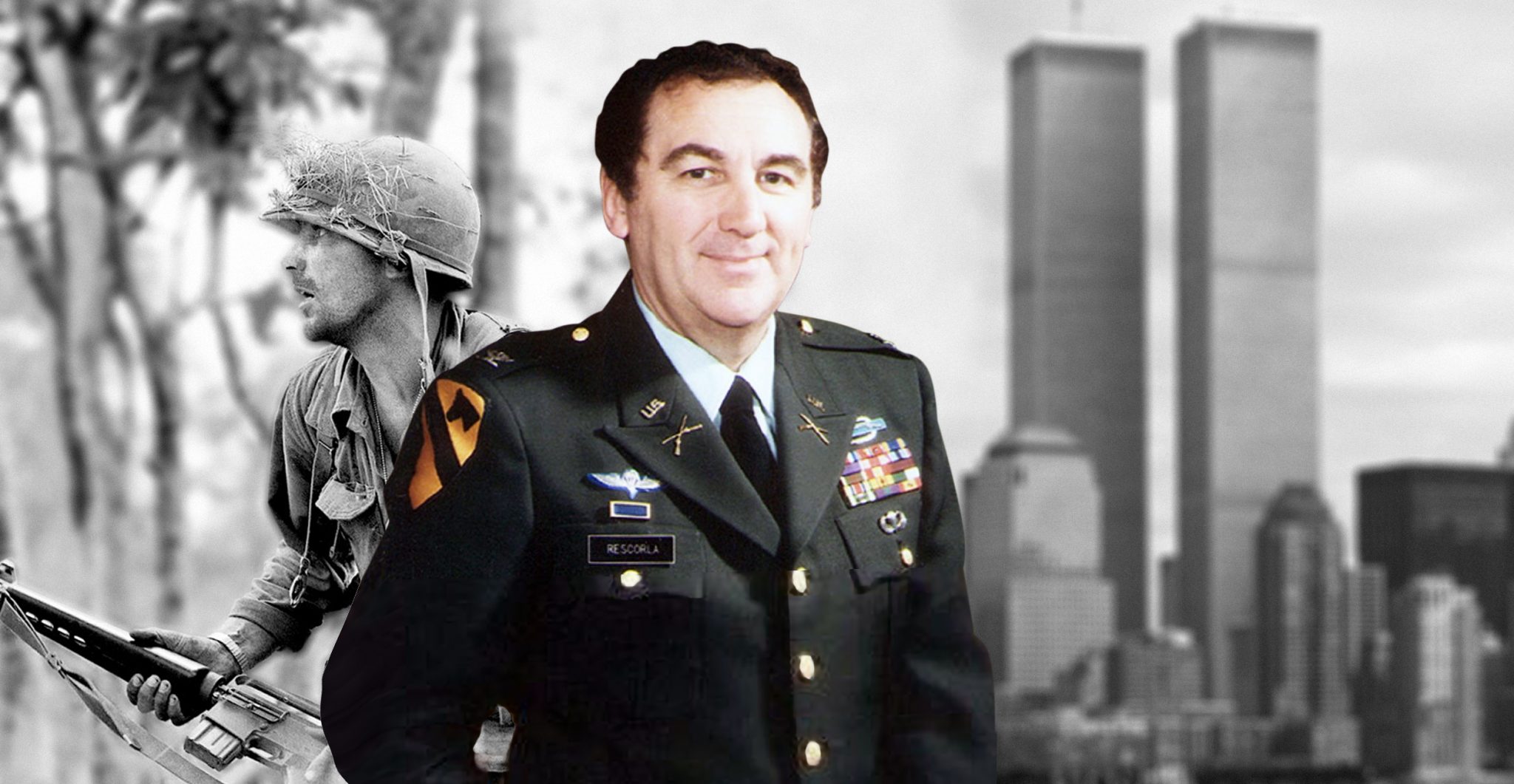Today is September 11th… 22 years after the fateful day.
September 11, 2001 was the night of our Guns Save Life meeting. A Tuesday evening on a day when gas went from $1.29/gallon to $4.99/gallon in some places and everywhere else sold it for $1.99. Back then that was a LOT for gas. We came together in solidarity and for camaraderie from throughout Illinois.
Thousands of Americans perished that day. There were so many outstanding people who died.
Among them Rick Rescorla (pictured above).
Read more about him at The New Yorker. Or you can follow the link and listen in your car. It’s an amazing story about an amazing hero who ultimately saved the lives of 2700 people working for his employer.
As Susan Greer was walking her golden retriever one morning near her home, in Morristown, New Jersey, she heard footsteps behind her. It was just after six, on a warm Saturday in late July of 1998; she liked the quiet and the early-morning light. The footsteps came closer, and then a jogger passed her. He was tall and somewhat heavy, and appeared to be about her age—she was fifty-six. What really caught her attention was his feet. He had no shoes on. It wasn’t like her to say anything to a stranger, but curiosity overcame her, and she asked, “What are you doing jogging in your bare feet?”
The jogger didn’t stop, or even turn around. “I need to know what it feels like to run without shoes,” he shouted, and explained that he was writing a play, and it was set in Africa. Then he was out of earshot. Even though Susan hadn’t glimpsed his face, something about his voice made an impression. She felt sure the same could not be said about her. She hadn’t bothered with any makeup that morning and was wearing old shorts and a T-shirt.
The next morning, she and the dog, Buddy, were again on their walk when a dark-green Lincoln Mark VIII pulled up, and a man inside said hello. She recognized the voice from the previous day. “Why not come to breakfast?” he asked.
Susan saw that the man had an open, friendly face and a direct gaze. “I can’t—I have the dog,” she said.
He seemed genuinely disappointed, so Susan proposed an alternative.
“Why don’t you come have coffee on the patio,” she said. She gave him the address of her town house, just around the corner.
Within the hour, she was pouring him coffee. He said that his name was Rick Rescorla, and he seemed eager to talk—so eager that Susan doubted he was paying much attention to her end of the conversation. (She was later surprised to learn that he remembered everything she’d said.) Rescorla told her that he was divorced, with two children, and was living in the area to be near them. He had been married for many years, but he and his wife had grown apart, and when he felt his children were old enough they’d divorced. His name wasn’t really Rick, he explained, but hardly anyone called him by his given names, Cyril Richard. He had grown up in Hayle, a tiny village in Cornwall, on England’s southwest coast, with his grandparents and his mother, who worked as a housekeeper and companion to the elderly. He’d left Hayle in 1956, when he was sixteen, to join the British military. He’d fought against Communist-backed insurgencies in Cyprus from 1957 to 1960, and in Rhodesia from 1960 to 1963.
These experiences had made him a fierce anti-Communist. The reason he had come to America, he said, was to enlist in the Army, so that he could go to Vietnam. He welcomed the opportunity to join the American cause in Southeast Asia and, for a long time, had never questioned the wisdom or morality of the war. After fighting in Vietnam, he returned to the United States, using his military benefits to study creative writing at the University of Oklahoma, and eventually earning a bachelor’s, a master’s in literature, and a law degree. He had met his former wife there.
Now he was spending his free time trying to write, mainly plays and screenplays. The play he had mentioned the previous morning, “M’kubwa Junction,” was set in Rhodesia, he said, and was based on his time there. Few of the native Rhodesians had worn shoes, which was why he had to feel what it was like to run barefoot. And all his life, he said, he had worked out and kept himself in good shape. He seemed self-conscious about his weight, and explained that his body had swollen because of medical treatments. He had prostate cancer, and the cancer had spread to his bone marrow. He said that he didn’t know how much time he had to live, but, whatever was left, he intended to make the most of it.

I read a book about hom after you or someone talked of him. Glad I did. He was an amazing sheepdog after imcredible military careers in 2 nations!